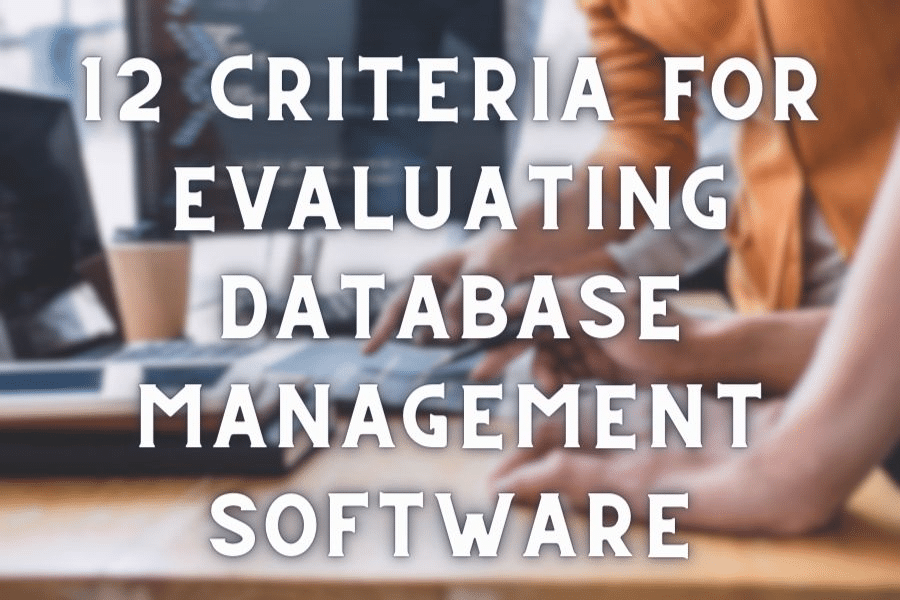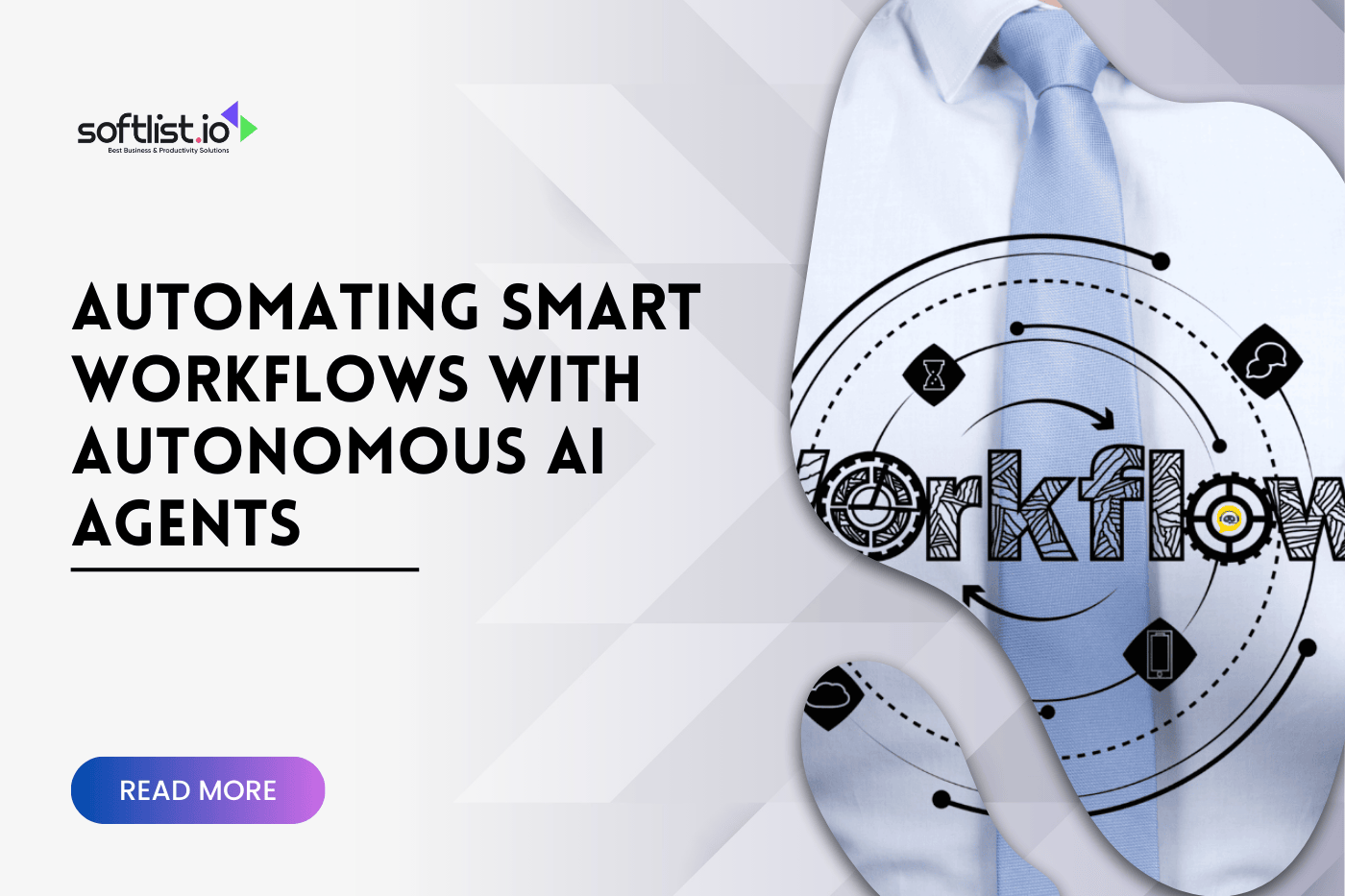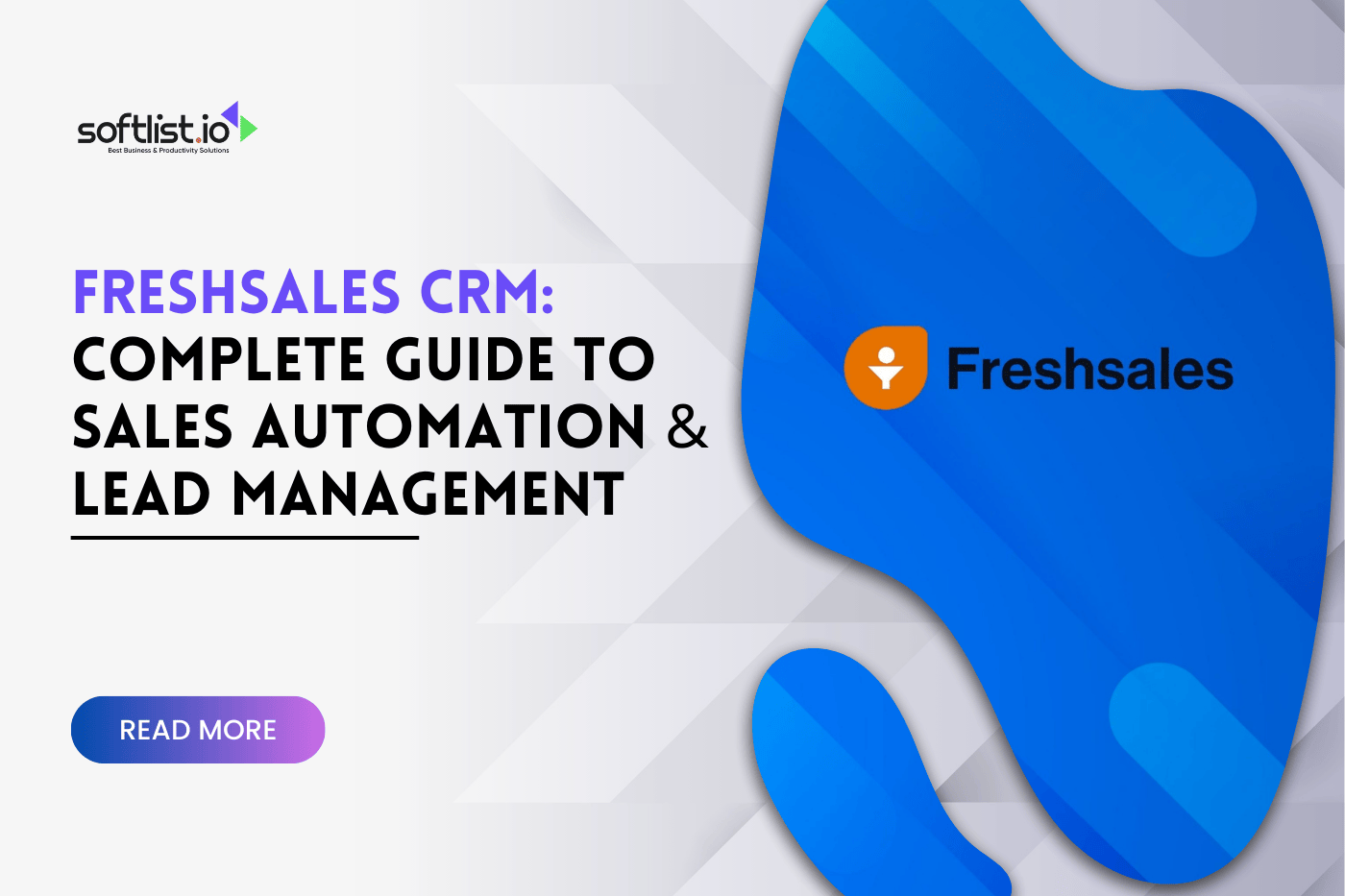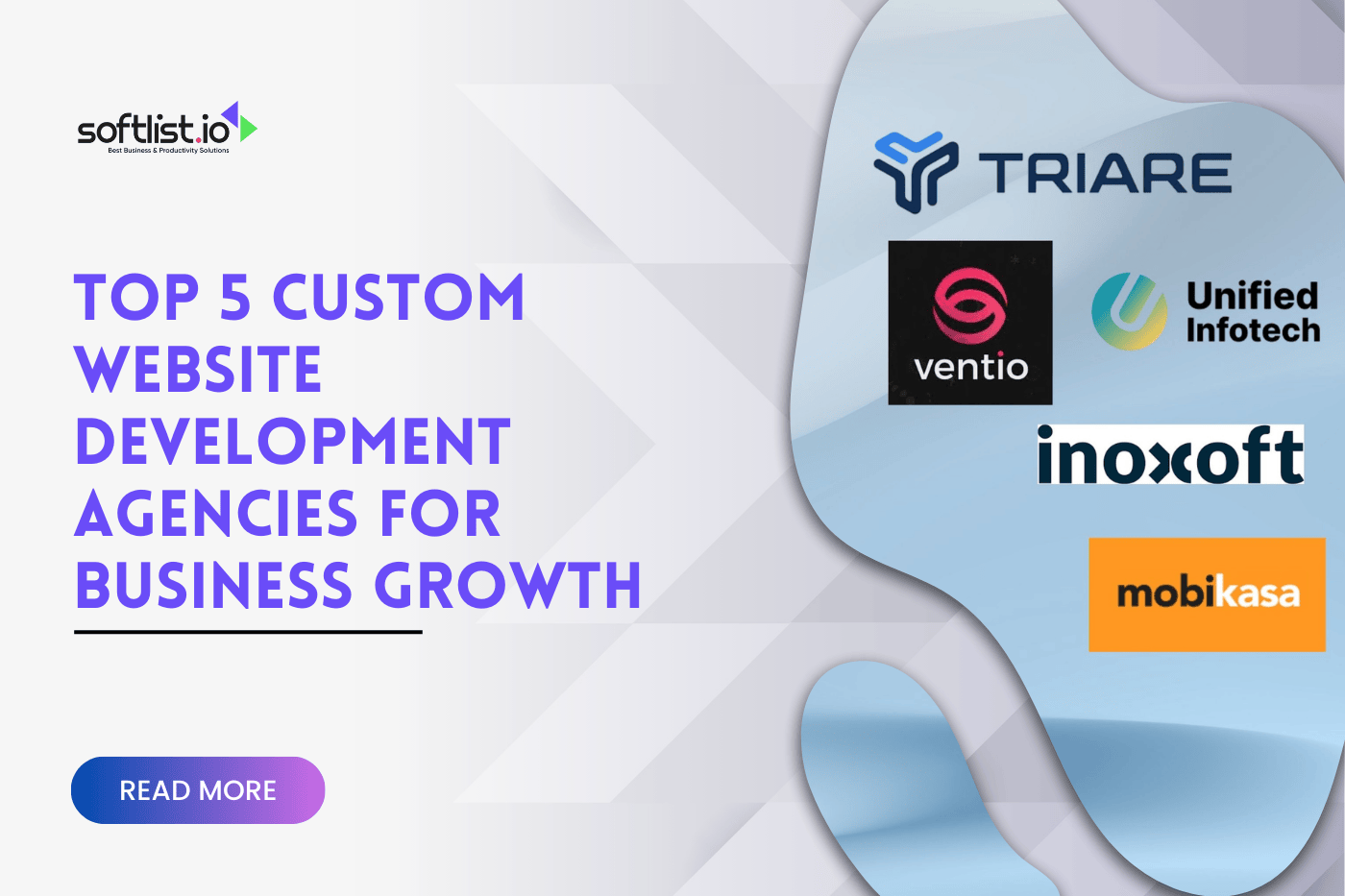There are so many popular database management systems and software that you might need to know which one will work best for you. Selecting the right database management system can be challenging. But keeping your organization’s data safe, organized, and easy to find is essential.
We’re glad you came to visit! Here, we’ll show you the most important things to consider when choosing the suitable DBMS for your business. By giving you a complete list of criteria, this blog is meant to make it easier to compare different database management software. It will help you choose well.
As you look around the site, you’ll learn more about the essential features and functions a database management solution should have. You’ll be able to find the best software for your business if you use these criteria critical to test it. This will help you ensure your business is more productive, your security is strong, and your data is handled well.
Take advantage of the chance to use your knowledge to choose the best database management software for your needs. Start your search for the best way to handle data by reading our blog today. Find out what you need to know to make the right decision and give your company a top-notch database solution.
Scalability

Database Management Software (DBMS) should be able to grow as needed. This is an important sign of how flexible it is. As a business grows and collects more data, its software needs to change.
A flexible information management system can do more work. They can add space and processing power without changing the system. As businesses gather more and more data, they need this skill to keep their processes quick and efficient.
Adding new technologies is easy with database management systems that can grow. It helps companies stay in business and change with the times.
Scalability makes it less likely that you’ll need to update or switch to more stable systems, which saves you money.
A flexible DBMS can handle future growth and new kinds of data better. This will help the company manage info in the long run. In a world where technology constantly changes, businesses must look at a DBMS’s ability to change, how well it works, and how much it costs.
Performance
When evaluating Database Management Software (DBMS), database performance is very important. It affects how quickly, efficiently, and productively a company can handle its data.
A good DBMS makes it easy to find and change data and gives you information in real-time that you can use to make decisions. To get ahead in today’s fast-paced business world, you need to handle a lot of info quickly.
A fast DBMS can handle complex queries and transactions. This makes it easier for businesses to analyze and process data. Systems that work quickly are less likely to freeze or crash, which makes them move more slowly.
A good DBMS reduces the need to repair hardware, saving the company money. Companies can ensure they can manage and use their data assets well by looking at how well a DBMS works.
This makes the business more efficient and mobile. In conclusion, speed is very important when a company chooses a DBMS for its current and future data management needs.
Security

Security is the most important thing to consider when looking at Database Management Software. (DBMS). This is because keeping private information safe is important for any business.
A safe DBMS uses robust tools to keep data safe from illegal access, data leaks, and possible cyberattacks. This makes sure that the information saved is suitable and safe. Having a DBMS in today’s digital world is essential, where data breaches and cyber threats are becoming more common. It should have robust security features to keep the trust of users, companies, and other important people.
A safe DBMS also follows government and business standards, like GDPR and HIPAA, that say how data should be kept secure. By following these rules, businesses can lower the legal and financial risks of not doing so.
A safe DBMS also makes it easier to track who has access. This means that businesses can set up permission systems that limit user access based on their jobs and responsibilities.
This function makes it less likely that someone will share or change private information without permission. In the end, security is integral to learning how to use a DBMS.
It ensures that a company’s data stays private, correct, and easy to access. This helps build trust and cooperation in a world that is turning more and more connected.
Data Consistency And Integrity
Data consistency and integrity ensure that the information saved in Database Management Software (DBMS) is correct and reliable.
A consistent DBMS ensures that the database administrators and multiple users always get the same data from the database, no matter how many transactions or changes are happening. So, organizations can make decisions based on sound facts.
Data integrity means that information is always complete and proper throughout its lifecycle. Integrity features of DBMS make sure that checking rules and limits are met. This keeps people from putting in the wrong information.
Because of this, mistakes are less likely to happen. Gets rid of erroneous data or strange trends in the data that could make it hard for a business to make decisions and run its operations. Companies can also follow the law if they ensure their data is correct and uniform.
Ultimately, companies need to judge DBMSs based on their data’s consistency and accuracy. It ensures the information is correct, trustworthy, and of high quality.
This makes it easy for the business to make intelligent choices. It can make things easier and stick to the rules, which helps it do well.
Flexibility And Adaptability

Flexibility and flexibility show how well Database Management Software (DBMS) can handle different data types. DBMSs that are flexible and easy to change can work with today’s and tomorrow’s technology.
This means that businesses can use the latest improvements in data management. They can research without having to make a lot of changes or pay for expensive moves. This is very important for businesses that must keep up with how quickly technology changes.
A company can quickly add or remove data storage and working power with a flexible DBMS. This makes things go more smoothly and promptly.
A business can choose between relational, document, and graph-based data types with a flexible DBMS. Organizations can change how they handle their data to meet new goals. So, the DBMS is always current.
Ultimately, companies need to look at how open and adaptable DBMSs are. It can help ensure that their data management methods are ready for the future.
Companies can adapt to changing needs, use new technology, and stay ahead of the competition. In a digital world that is constantly changing, it is possible if they choose a method that is open and easy to change.
Ease Of Use And Administration
How easy it is to use, and handle affects how well Database Management Software (DBMS) works, how much it gets done, and how the user feels about it.
A DBMS that is easy to use makes it easy for both technical and non-technical users to work with and handle data.
This means that organizations can use their data resources well without a lot of training or specialized understanding. This makes it easier for people to make choices based on data and speeds up how the whole company handles data.
People who work with multiple databases can benefit from a database management system that is easy to use. The system is set up, organized, managed, and taken care of by these jobs. Administrators can focus on strategic goals.
They can spend less time and money on managing computer systems. An easy-to-use database management system usually comes with a lot of documentation and a robust help network. This makes it better for the user and easy to fix problems.
Ultimately, businesses should consider how easy it is to use a DBMS and how well it can be controlled. It ensures that their system for managing data works is easy to use and accessible.
This helps businesses use their data tools in the best way possible. It makes the workforce stronger, improves productivity, and streamlines processes.
Integration And Interoperability

Integration and interoperability show how well it works in an organization’s IT setting. It offers other software, systems, and data sources.
With a DBMS that has robust integration features, companies can join, sync, and share data across many apps. This speeds up work and makes it easy to work as a team. Businesses that use a lot of different kinds of software and data to do their job and make decisions need this.
Interoperability, however, means that the DBMS can share and understand data from other systems, no matter their style or layout.
An affordable database management system let everyone in the company get the same info.
This helps with a way to keep track of information. Integration and openness also help businesses make the most of new data sources and tools. They can adapt to changes in the market and try new things.
Firms must consider DBMSs based on how well they work with other systems to set up a reliable, easy-to-use data management platform.
It is a system that connects to and studies data from many different sources. It can speed up processes, make working together easier, and get the most out of data assets.
High Availability And Fault Tolerance
People value today’s database development because they are reliable and can solve problems. High-availability database management tools can be used and seen all the time.
A database management system like sql server can keep running even if something goes wrong. Whether hardware or software stops working doesn’t matter.
Because of these features, users can always get to their information, even if the system crashes. High-availability database management systems can handle a lot of calls at the same time without slowing down. Fault tolerance keeps the system running even if hardware or software breaks.
Tools for managing databases should have high uptime and be able to fix problems when they happen. Customers will always get the information they need. Data is kept from getting lost or changed because of high uptime and fault tolerance. It can cost a lot of money and take a long time.
Tools for managing databases should be easy to use and still work if something goes wrong.
People can still use the library even if hardware or software breaks. These things keep data safe in database management systems.
Vendor Support And Community

When looking at database management software, you should think about help from the community. “Vendor support” means assistance from the software company.
Meanwhile, “community” represents how many people use the tool and what they do with it.
How soon users can get help with software depends on how well the vendor supports it. By fixing problems quickly, good vendor support reduces downtime and lost production.
Poor seller support can lead to unhappy customers and long rest periods, hurting a business’s work.
People can get knowledge, help, and advice from their community. A strong group can help each other solve issues and share information and experiences. The size and activity of a software group could show how good and long-lasting it is.
When picking database management software, you should think about support from the vendor and the community. When users buy software with good vendor support and a busy user group, they get the tools they need to use and fix it. This makes work go faster and better.
Cost-Effectiveness
When considering database management software, looking at how well it works for the money is essential.
Cost-effectiveness means that the benefit of a program is equal to how much it costs. The price of the program includes both the one-time cost to buy it and any continued costs for maintenance or updates.
The return on investment is based on how well the money is spent on the scheme. (ROI). If the software is too expensive, it might not be worth getting, significantly if it doesn’t add much value or improve business operations.
But if the software is too cheap, it might need the right features or help, which can hurt work and speed. So, when looking at database management software, it’s essential to consider how much it will cost. Users should look at the software’s features, benefits, and price to decide if it is worth the money.
Users should also consider how much it will cost to keep it running and make improvements. It can help ensure they can use the software well for a long time. Users can improve their processes and keep costs down simultaneously when choosing software that doesn’t cost too much.
Platform Compatibility
When considering database management software, platform freedom is an essential thing to look at. A program can run on different devices and operating systems when it is platform-compatible.
It’s important to support different systems because that affects how open and accessible to use the software is. If the software doesn’t work on the user’s platform, it can’t be used, which makes it less valuable. Also, if users have to buy extra tools, it can make it more expensive for them to use the software and make it less cost-effective.
So, when looking at database management tools, it’s essential to consider which platforms they work on. Users should check to see if the software works with the gear and software they already have.
They should think about what kinds of tools they might want to use in the future. Users can ensure they can use the software well and get the most out of it by ensuring it works with their systems.
Compliance With Industry Standards And Regulations
The tools used to manage databases should meet their area’s standards. Field standards ensure that software meets the rules and best practices of the field. The government or officials set rules for regulated software.
Compliance ensures that software is safe, works well, and keeps data secure. Compliance tests and proves software against laws and industry norms.
This helps keep risks in check. A business can also get an edge by following the rules and standards of its industry. It can show potential clients and business partners that the software is safe and trustworthy.
So, tools for managing information must meet a business’s needs. Users should make sure that the program fits industry standards and laws like HIPAA and GDPR.
It keeps private information safe and helps them do what the law says they have to do. By choosing the right software, users can lower risks, stay safe, and show they care about best practices and the law.
Frequently Asked Questions
What is database management software?
Database Management tools (DBMS) are software tools that are used to store, retrieve, and move database objects and run queries on data. A DBMS is a link between an end-user and a database. It lets users add, change, remove, and read data in the database.
What is the performance measure of a database system?
Throughput is one of the most important measures of how well a database engine works. It is how much work your database system does in a certain amount of time, like per second or hour. Most of the time, it is measured by how many searches are run per second.
Is a database management system expensive?
The cost of the software, the jobs for recovery and backup, and the work to improve performance can be pretty high. But it has many benefits for a company because it helps ensure that a lot of data can be stored.
Final Thoughts
This blog post ends with a list of all the tips you need to know to choose the best database management system. If you think about these things, the database schema solutions you choose will meet your organization’s needs. It can also ensure that data is managed well, that security is good, and that the business can grow.
One of the most important things it can do is help your organization handle export data better. It can significantly affect how well your business works, how much it grows, and how well you can make decisions. Taking the time and trying to use these 12 criteria to compare different software solutions will pay off in the long run.
Visit our website to learn more about the software solutions. We offer how we can help you with your research. On our website, you can find detailed information, expert advice, and helpful tools to help you make a good choice. Take advantage of the chance to get your business’s best database management software. Visit our website immediately to learn how to use your next data storage system to its fullest.





